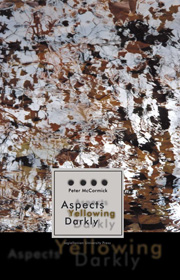 Aspects Yellowing Darkly
Aspects Yellowing Darkly Book contents
- Frontmatter
- Dedication
- Epigraph
- Contents
- PREFACE
- ORIENTATIONS – Moral Intuitionisms and the Emerging Europe
- PART ONE FIRST READINGS
- Chapter One Versions of Modernity
- Chapter Two Moral Discourse and Figurative Articulations of Suffering in T.S. Eliot
- Chapter Three Moral Knowledge and Perceptions of Suffering in Paul Valéry
- Chapter Four Moral Motivation and Suffering in Eugenio Montale
- INTERLUDE
- PART TWO SECOND THOUGHTS
Chapter Two - Moral Discourse and Figurative Articulations of Suffering in T.S. Eliot
from PART ONE - FIRST READINGS
Published online by Cambridge University Press: 05 September 2014
- Frontmatter
- Dedication
- Epigraph
- Contents
- PREFACE
- ORIENTATIONS – Moral Intuitionisms and the Emerging Europe
- PART ONE FIRST READINGS
- Chapter One Versions of Modernity
- Chapter Two Moral Discourse and Figurative Articulations of Suffering in T.S. Eliot
- Chapter Three Moral Knowledge and Perceptions of Suffering in Paul Valéry
- Chapter Four Moral Motivation and Suffering in Eugenio Montale
- INTERLUDE
- PART TWO SECOND THOUGHTS
Summary
We come now to the first of the three aspects of moral intuitionism that we have selected for closer inspection, the theme of moral discourse. We do so with the help of a reflective first reading of figurative expressions of moral intuition and moral suffering in one of the masterpieces of European high modernist poetry, T.S. Eliot's The Waste Land (1922). After our first reflections here we will need to return to this work in chapter seven for second thoughts in the light of our further reflections on the high modernist poetry of Valéry and Montale.
Our interests here focus on the usefulness for comprehending moral discourse in ongoing ethical reflection in the emerging new Europe today of enlarging current philosophical discussion of the importance of the strictly literal so as to take better account of some central uses of non-literal language. We will find that the strictly literal turns out very oft en to be either inaccessible to much moral reflection or inadequate for its proper articulation. By contrast, the non-literal seems almost ubiquitous for much moral reflection and perhaps even essential for its proper articulation.
We may take as our general guideline here neither the kind of interpersonal suffering we will be observing in T.S. Eliot's figured discourse in The Waste Land, nor the kind of intensely private suffering we will be considering in the next chapter in Paul Valéry's incessant reflections in his Cahiers on how one might finally perceive and come to know the moral qualities of the interactions between world, body and mind.
- Type
- Chapter
- Information
- Aspects Yellowing DarklyEthics, Intuitions, and the European High Modernist Poetry of Suffering and Passage, pp. 57 - 72Publisher: Jagiellonian University PressPrint publication year: 2010


